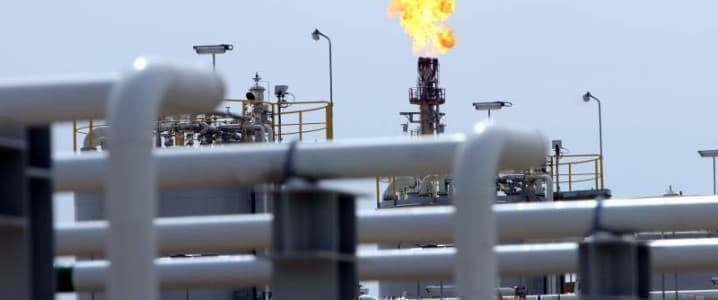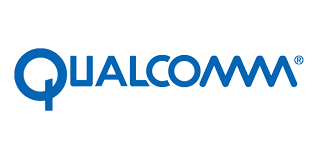Iraq’s Khor Mor gas field, the largest non-associated gas field in the country, is poised to increase its output by 50% to 750 million standard cubic feet per day (MMscf/d). This significant enhancement follows the early completion of the KM250 project by key stakeholders, Crescent Petroleum and Dana Gas, which delivered the project eight months ahead of schedule.
The KM250 project will also produce 7,000 barrels of condensate per day and 460 tonnes per day of liquefied petroleum gas (LPG), adding to current production levels of 15,200 bbl/d of condensate and 1,070 t/d of LPG. Situated in the Kurdistan Region of Iraq (KRI), this development is expected to enhance power generation and stimulate industrial growth across the region. It directly supports the Kurdistan Regional Government’s initiative to provide 24-hour electricity, while also improving the power supply to other areas of Iraq.
Financed by a combination of funding sources, including the $1.1 billion project listed on the Nordic Alternative Bond Market, the financing comes from the U.S. Development Finance Corporation (DFC), the Bank of Sharjah, and proceeds from Pearl Petroleum’s $350 million senior secured bonds. Crescent Petroleum and Dana Gas each hold a 35% stake in the Khor Mor gas field.
Majid Jafar, CEO of Crescent Petroleum, emphasized the significance of this early completion, stating, “Delivering KM250 ahead of schedule marks a significant achievement for Crescent Petroleum, Dana Gas, and our Pearl Consortium partners. This accomplishment highlights our ongoing dedication to the Kurdistan Region of Iraq, demonstrates our capacity to unlock its vast energy resources, and reinforces our commitment to generating jobs, enhancing local services, and providing cleaner, more reliable energy for the Region and the Country.”
The KRI is experiencing a resurgence in its energy sector. Since the resumption of crude exports on September 27, 2023, approximately 2.5 million barrels have been exported, following a two-and-a-half-year suspension. Exports were halted earlier in 2023 after a ruling by the International Chamber of Commerce (ICC) determined that Turkey had violated a 1973 treaty by purchasing Kurdish crude without Iraq’s consent.
In a parallel development, French oil and gas multinational, TotalEnergies, has initiated the Gas Growth Integrated Project (GGIP), a multi-energy initiative valued at $27 billion. This project follows an agreement with the Iraqi government in 2024 to advance a long-delayed energy initiative. The GGIP encompasses various components, including the development of the Ratawi oil field, construction of a 1 GW solar farm, and a seawater treatment plant. The first phase aims for 120,000 b/d production by early 2026, with the solar component expected to start delivering power by the end of 2025.
TotalEnergies initially signed a deal with the Iraqi government in 2021, which included plans for four oil, gas, and renewable energy projects in southern Iraq over a period of 25 years, with an initial investment of $10 billion. However, this large endeavor faced delays due to disputes among Iraqi politicians regarding the terms. Recently, Iraq agreed to a smaller 30% stake in the project, paving the way for renewed foreign investment.
The Iraqi government’s confirmation of the entire contract, without modifications, was described as “more than good news” by Total Chief Executive Patrick Pouyanne during an interview with Reuters.
Meanwhile, British oil and gas giant BP Plc is set to commence the development of Iraq’s Kirkuk oil and gas fields, having finalized a contract in March 2025. Current production from the Kirkuk oil fields is approximately 245,000 barrels of crude oil per day. The Kirkuk Field, discovered in 1927, is one of the world’s largest onshore oil fields, with estimated recoverable oil reserves of 10 billion barrels.
As OPEC’s second largest producer, Iraq heavily relies on crude oil exports, which account for over 90% of the country’s revenues. Recent fluctuations in oil prices have posed challenges, with prices dipping to a five-month low following escalated U.S.-China trade tensions. The International Energy Agency (IEA) has projected a supply surplus in 2026. Nevertheless, analysts at Standard Chartered view the current bearish sentiment as largely unwarranted, suggesting that compensatory production cuts by Iraq and Kazakhstan will adequately address the ongoing unwinding cuts program by OPEC+.
Markets reacted positively after the OPEC+ meeting on October 5, 2023, where the organization announced an additional 137,000 barrels per day to the market starting in November. OPEC+ has outlined proposed compensation cuts for overproduced volumes by six members, primarily led by Iraq, which has suggested a reduction of 130,000 b/d from August 2025 through January 2026, tapering to 122,000 b/d in June 2026.
Analysts from Standard Chartered have highlighted that Iraq will carry a significant share of the adjustments in OPEC+’s unwinding strategy, indicating that the country’s cuts alone could nearly balance out the increases from other member states.







